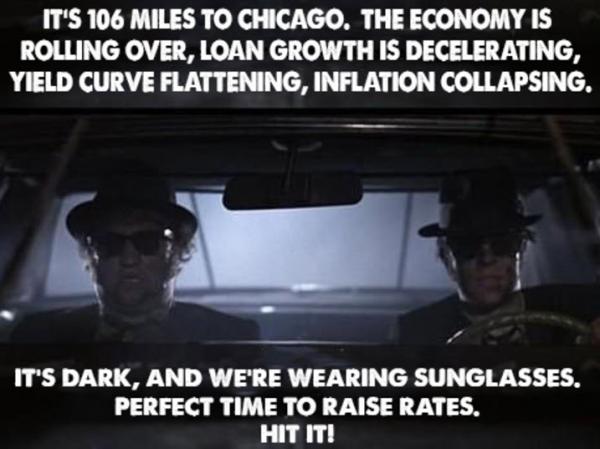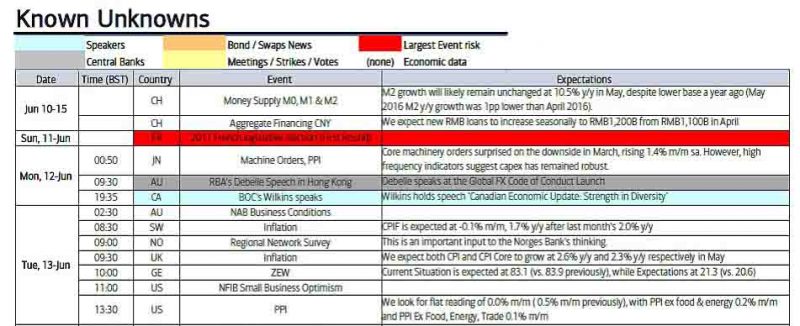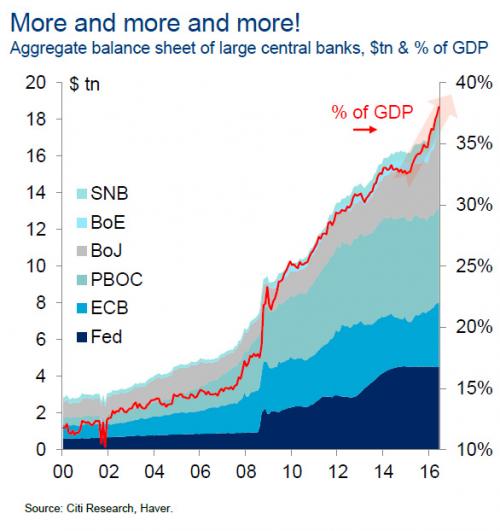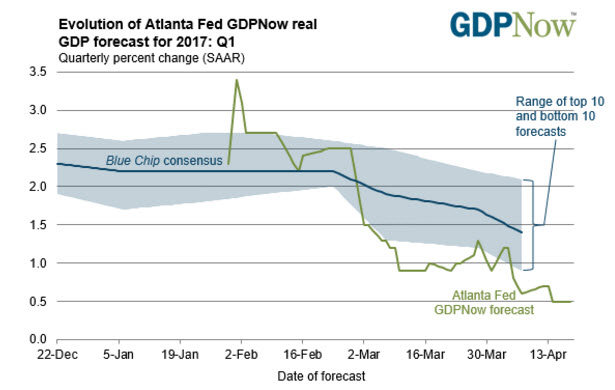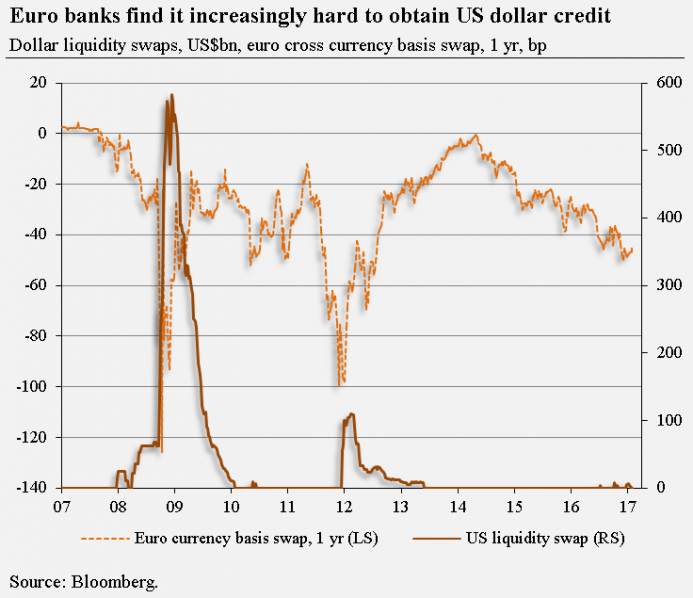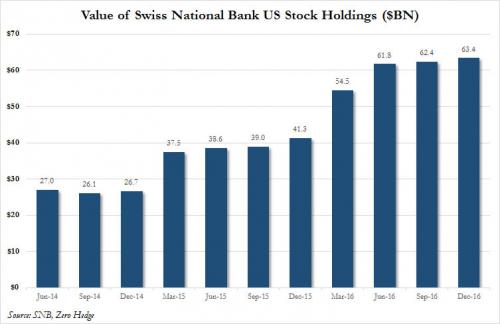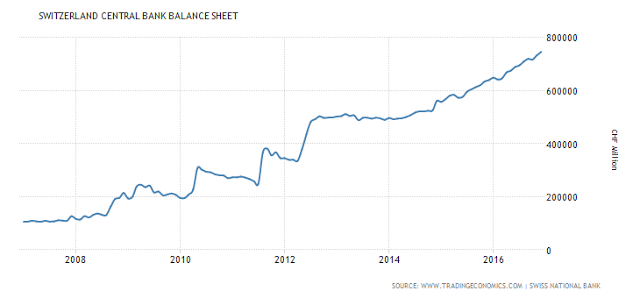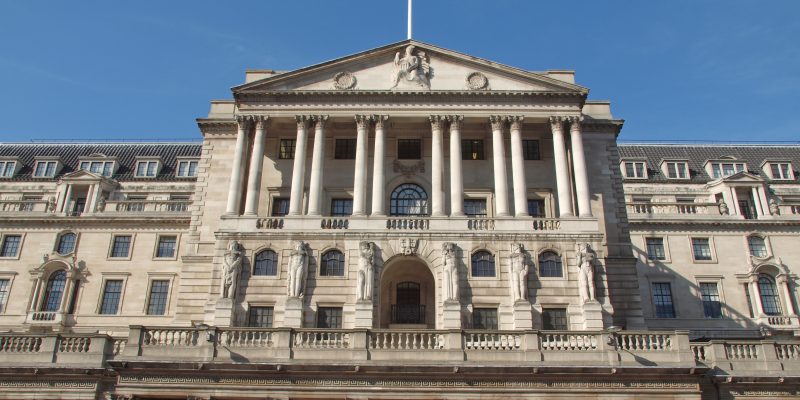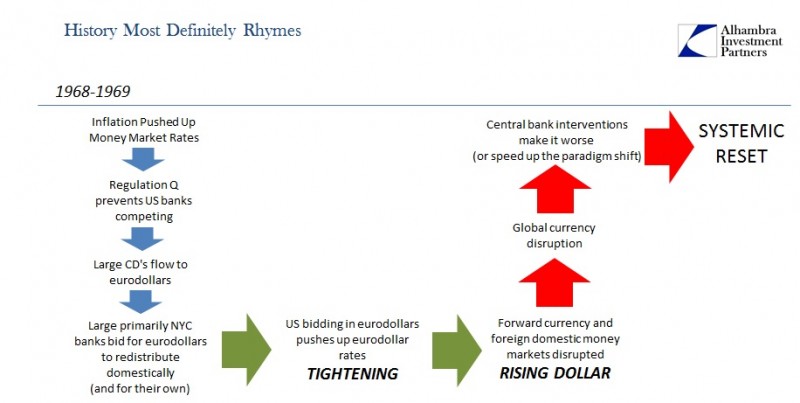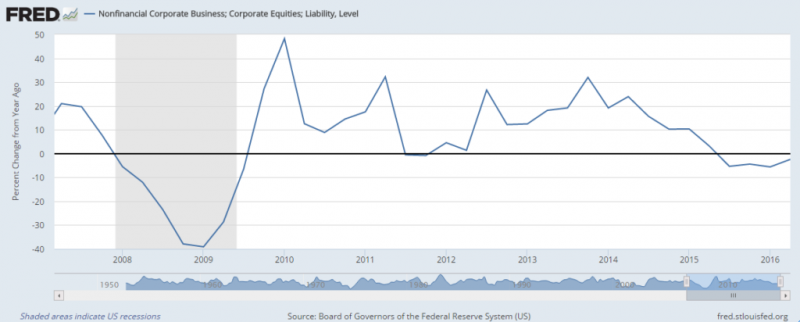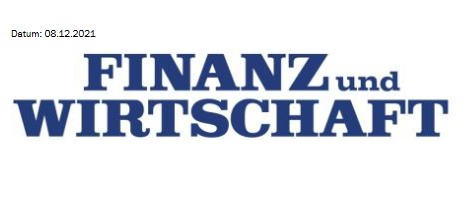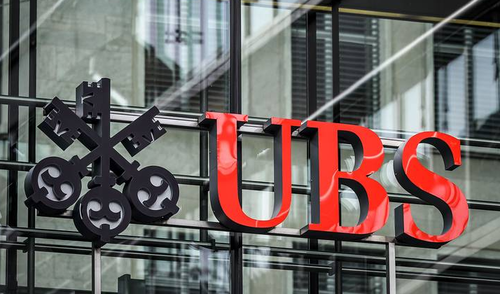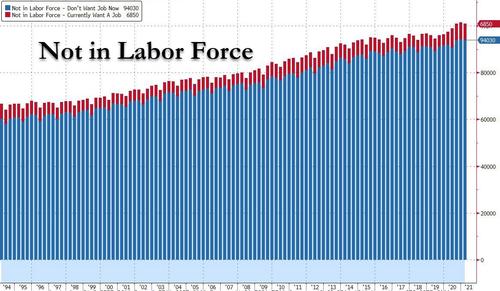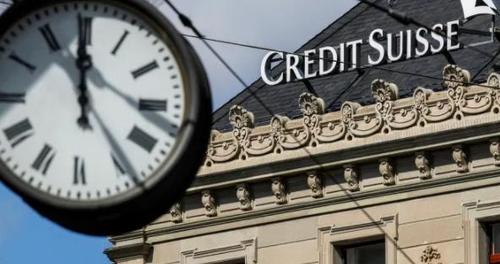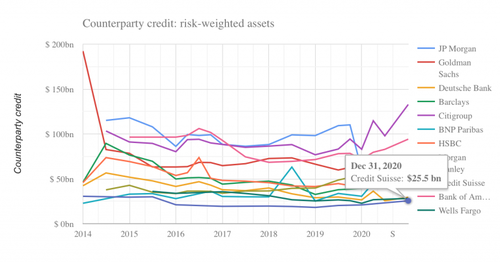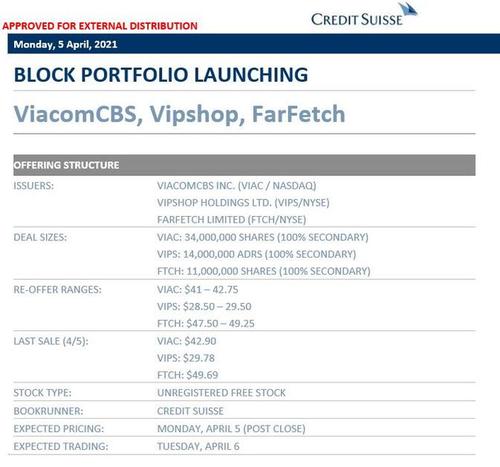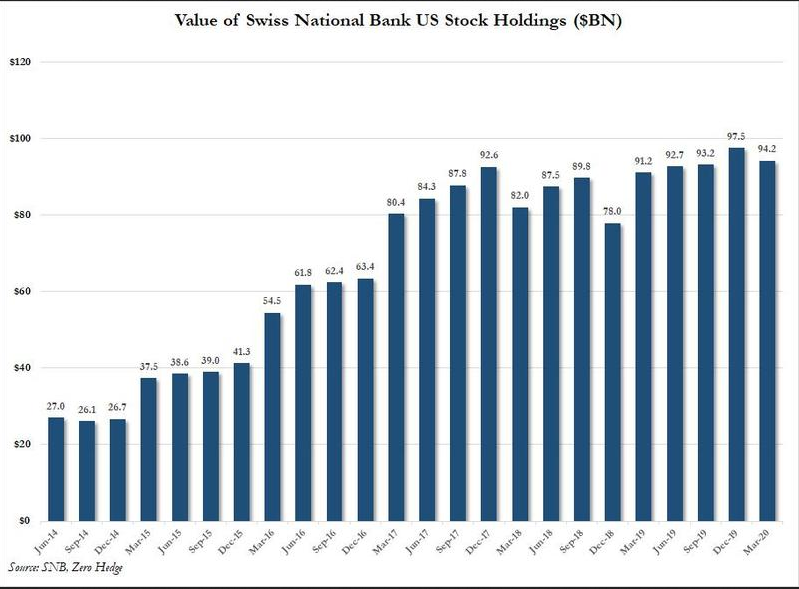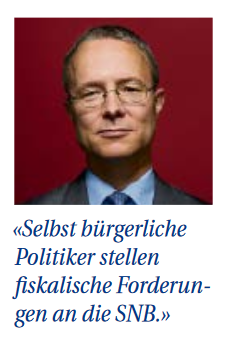Category Archive: 1.) English Posts on SNB
“It’s A Perfect Storm Of Negativity” – Veteran Trader Rejoins The Dark Side
After many months of fighting all the naysayers predicting the next big stock market crash, I am finally succumbing to the seductive story of the dark side, and getting negative on equities. I am often early, so maybe this means the rally is about to accelerate to the upside.
Read More »
Read More »
Key Events In The Coming Busy Week: Fed, BOJ, BOE, SNB, US Inflation And Retail Sales
After a tumultous week in the world of politics, with non-stop Trump drama in the US, a disastrous for Theresa May general election in the UK, and pro-establishment results in France and Italy, this is shaping up as another busy week ahead with multiple CB meetings, a full data calendar and even another important Eurogroup meeting for Greece.
Read More »
Read More »
The SNB’s Currency Interventions
On the FT’s Alphaville blog, Matthew Klein reviews Swiss monetary policy over the last years and its effect on the real economy. He concludes that - it seems the SNB’s relentless accumulation of foreign assets has been pointless — at best. More likely, the behaviour qualifies as predatory mercantilism at the expense of the rest of the world, especially Switzerland’s hard-hit neighbours.
Read More »
Read More »
Remembering A Still Falling Hero: Small Business
On this holiday weekend known here in the U.S. as Memorial Day, I would like to make a slight turn in the narrative that many give little to no attention too, yet, is one of the most important underlying principles or fundamentals which helped shape, lift, mold, sustain, and create one of the world’s greatest economic powerhouses bar none.
Read More »
Read More »
A Problem Emerges: Central Banks Injected A Record $1 Trillion In 2017… It’s Not Enough
Two weeks ago Bank of America caused a stir when it calculated that central banks (mostly the ECB & BoJ) have bought $1 trillion of financial assets just in the first four months of 2017, which amounts to $3.6 trillion annualized, "the largest CB buying on record."
Read More »
Read More »
“Mystery” Central Bank Buyer Revealed, Goes On Q1 Buying Spree
In the first few months of the year, a trading desk rumor emerged that even as institutional traders dumped stocks and retail investors piled into ETFs, a "mystery" central bank was quietly bidding up risk assets by aggressively buying stocks. And no, it was not the BOJ: while the Japanese Central Bank's interventions in the stock market are familiar to all by now, and as we reported last night on sessions when the "the BoJ comes in big, the...
Read More »
Read More »
Digital Swiss Francs
The Swiss National Bank held its annual general meeting of shareholders (web TV). In response to one of the questions posed by shareholders Thomas Jordan suggested (2:58–2:59) that possibly a digital Swiss Franc might be introduced sometime in the future.
Read More »
Read More »
Where There’s Smoke…
Central banks around the world have colluded, if not conspired, to elevate and prop up financial asset prices. Here we'll present the data and evidence that they've not only done so, but gone too far. When we discuss elevated financial asset prices we really are talking about everything; we're talking not just about the sky-high prices of stocks and bonds, but also of the trillions of dollars’ worth of derivatives that are linked to them, as well...
Read More »
Read More »
Swiss Franc Exchange Rate Index
The Swiss National Bank has updated its exchange rate indices. In an SNB Economic Studies paper, Robert Müller describes how. The upshot is that the SNB considers the Swiss Franc slightly less overvalued than before.
Read More »
Read More »
It Is Time To Short The Swiss National Bank!
The current Article will take a closer look to the incredible rise of the Swiss National Bank stock and suggest why taking a short position could be the right trade at this level. The Swiss Central Bank: Mandate and Monetary Policy. According to the Swiss Federal Constitution (Art. 99) the Swiss Central Bank is an independent institution with the mandate to conduct the monetary policy in Switzerland by ensuring price stability, while taking into...
Read More »
Read More »
What Will Trump Do About The Central-Bank Cartel?
The US is by far the biggest economy in the world. Its financial markets — be it equity, bonds or derivatives markets — are the largest and most liquid. The Greenback is the most important transaction currency. Many currencies in the world — be it the euro, the Chinese renminbi, the British pound or the Swiss franc — have actually been built upon the US dollar.
Read More »
Read More »
Swiss National Bank’s U.S. Stock Holdings Hit A Record $63.4 Billion
Being able to print your own money and buy stocks at any price sure can be fun. Just as the SNB which unlike many other (if ever fewer) central banks admits to doing just that. In its latest 13F filing, the Swiss National Bank reported that the value of its portfolio of US stocks rose again in the fourth quarter, increasing by 1.6% from $62.4 billion as of Sept. 30 to a record high $63.4 billion at the end of the year.
Read More »
Read More »
The VIX Will Be Over 100 due to Central Bank Created Tail Risk
We discuss the manner in which Central Banks have destroyed financial markets, and have the stage for what I label as the Red Swan Event in this video. When the Swiss National Bank holds risky Tech stocks in its portfolio, we are in unchartered territory!
Read More »
Read More »
80 percent Of Central Banks Plan To Buy More Stocks
Regular readers remember how, when we first reported around the time of our launch eight years ago that central banks buy stocks, intervene and prop up markets, and generally manipulate equities in order to maintain confidence in a collapsing system, and avoid a liquidation panic and bank runs, it was branded "fake news" by the established financial "kommentariat."
Read More »
Read More »
How Derivatives Markets Responded to the De-Pegging of the Swiss Franc
In a Bank of England Financial Stability Paper, Olga Cielinska, Andreas Joseph, Ujwal Shreyas, John Tanner and Michalis Vasios analyze transactions on the Swiss Franc foreign exchange over-the-counter derivatives market around January 15, 2015, the day when the Swiss National Bank de-pegged the Swiss Franc. From the abstract.
Read More »
Read More »
We Know How This Ends – Part 2
In March 1969, while Buba was busy in the quicksand of its swaps and forward dollar interventions, Netherlands Bank (the Dutch central bank) had instructed commercial banks in Holland to pull back funds from the eurodollar market in order to bring up their liquidity positions which had dwindled dangerously during this increasing currency chaos.
Read More »
Read More »
Kosten eines Vollgeld-Systems sind hoch (Costly Sovereign Money)
Eine Umsetzung der Vollgeld-Initiative würde grossen Schaden anrichten und dürfte im Ergebnis selbst die Initianten enttäuschen. Verbesserungen verspricht dagegen eine «sanfte» Reform: die Einführung von elektronischem SNB-Geld für alle.
Read More »
Read More »
Swiss banks probed at home over Brazil’s ‘Carwash’ bribe scandal
The Switzerland attorney general’s office is shifting its focus to banks operating in the country as it continues to investigate Brazil’s bribery scandal, after plea deals with individual executives provided fresh insights into how the illicit funds flowed through the financial system.
Read More »
Read More »
Did President-Elect Trump Just Inadvertently Kill The Golden Goose?
President-Elect Trump may have just unwittingly sowed the seed of an equity market draw-down which will send even more protesters into the streets of America. Donald Trump’s stated economic policies are clearly pro-growth and if he manages to implement his pro-business, anti-regulation agenda, in the longer term they have the potential to surpass the bold and successful initiatives of Ronald Reagan.
Read More »
Read More »
Swiss National Bank won’t cut record low interest rate again, survey shows
The Swiss National Bank, which has the lowest interest rate among the world’s major central banks, may be done cutting. SNB President Thomas Jordan and his fellow policy makers will keep the deposit rate unchanged at minus 0.75 percent until at least the end of the first quarter of 2019, according to the median forecast in Bloomberg’s monthly survey of economists. That would mean ignoring the International Monetary Fund’s advice to fend off inflows...
Read More »
Read More »









